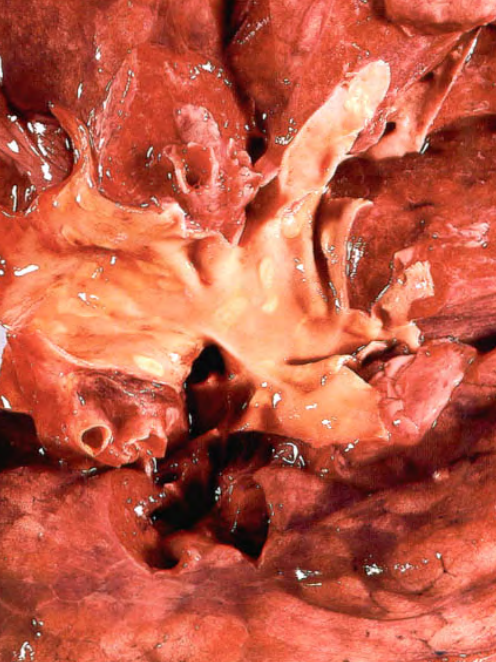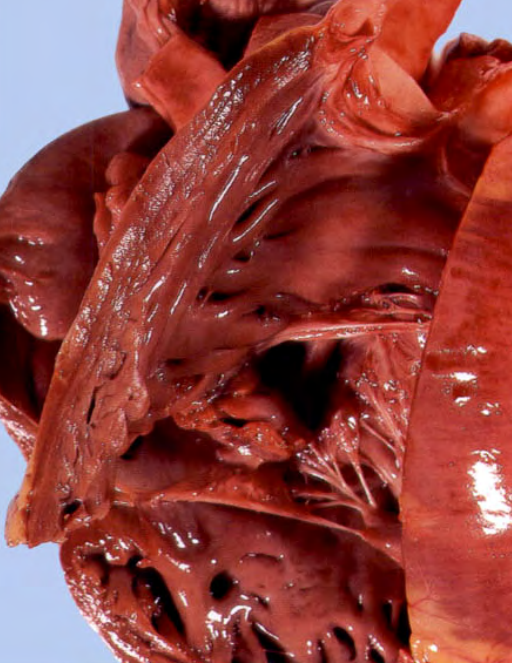Pulmonary Hypertension
Content of This Page
1- Introduction
2- Causes
3- Symptoms
4- Types of The Disease
5- Treatment
6- What Should You Avoid
Introduction
Pulmonary Hypertension (PH) is a condition characterized by high blood pressure in the arteries that supply the lungs (pulmonary arteries). This condition can lead to serious health issues, as the increased pressure forces the heart to work harder to pump blood through the lungs, which can eventually lead to heart failure.

Causes
Pulmonary Hypertension (PH) can be caused by a variety of underlying conditions, and the causes often depend on the specific type of PH. Here’s a breakdown of the main causes associated with each type:
1. Pulmonary Arterial Hypertension (PAH):
- Idiopathic PAH: No known cause, but it may be linked to genetic mutations.
- Heritable PAH: Linked to genetic mutations, particularly in the BMPR2 gene.
- Drug and Toxin-Induced: Certain medications (e.g., appetite suppressants like fenfluramine) and illegal drugs (e.g., methamphetamines) have been linked to PAH.
- Connective Tissue Diseases: Conditions like scleroderma and lupus can damage the pulmonary arteries.
- Congenital Heart Diseases: Heart defects present at birth that affect the flow of blood through the heart and lungs.
- HIV Infection: HIV can cause damage to the pulmonary arteries.
- Liver Disease (Portopulmonary Hypertension): Chronic liver disease, such as cirrhosis, can lead to elevated pressure in the pulmonary arteries.
2. Pulmonary Hypertension due to Left Heart Disease:
- Left Ventricular Dysfunction: Conditions like heart failure with preserved or reduced ejection fraction.
- Mitral Valve Disease: Problems with the mitral valve can lead to blood backing up into the lungs, causing increased pressure.
- Aortic Valve Disease: Similar to mitral valve disease, issues with the aortic valve can lead to increased pressure in the pulmonary arteries.
3. Pulmonary Hypertension due to Lung Disease or Hypoxia:
- Chronic Obstructive Pulmonary Disease (COPD): Includes emphysema and chronic bronchitis, which can cause hypoxia (low oxygen levels) and lead to PH.
- Interstitial Lung Disease: A group of diseases that cause scarring of the lung tissue, leading to PH.
- Sleep Apnea: Repeated interruptions of breathing during sleep can cause low oxygen levels and lead to PH.
- Living at High Altitudes: Long-term exposure to high altitudes can lead to PH due to chronic hypoxia.
4. Chronic Thromboembolic Pulmonary Hypertension (CTEPH):
- Blood Clots: Pulmonary embolism (PE), where blood clots travel to the lungs, can lead to chronic clots that block or narrow the pulmonary arteries, causing PH.
5. Pulmonary Hypertension with Unclear Multifactorial Mechanisms:
- Sarcoidosis: A condition that causes clusters of inflammatory cells to form in various organs, including the lungs.
- Blood Disorders: Conditions like polycythemia vera (excess red blood cells) or sickle cell disease can increase the risk of PH.
- Systemic Disorders: Conditions like vasculitis (inflammation of the blood vessels) can cause PH.
Other Contributing Factors:
- Obesity: Particularly when associated with sleep apnea.
- Chronic Kidney Disease: Can lead to fluid overload and increased blood pressure, contributing to PH.
- Autoimmune Diseases: Conditions that cause the body’s immune system to attack its tissues, such as rheumatoid arthritis, can affect the pulmonary arteries.
Symptoms
- Shortness of breath, especially during activity
- Fatigue
- Chest pain
- Rapid heartbeat
- Swelling in the ankles, legs, or abdomen
- Cyanosis (bluish color to the lips and skin)

Types of The Disease
Pulmonary Arterial Hypertension (PAH): This is a rare type where the blood vessels in the lungs are narrowed, blocked, or destroyed, leading to high blood pressure.
Pulmonary Hypertension due to Left Heart Disease: This is the most common type, occurring as a result of left-sided heart conditions such as mitral valve disease or long-term high blood pressure.
Pulmonary Hypertension due to Lung Disease or Hypoxia: Conditions like chronic obstructive pulmonary disease (COPD) or interstitial lung disease can lead to this type.
Chronic Thromboembolic Pulmonary Hypertension (CTEPH): This occurs due to blood clots that don’t dissolve in the lungs and lead to increased pressure.
Pulmonary Hypertension with Unclear Multifactorial Mechanisms: This category includes PH caused by multiple factors that don’t fit into the above categories, such as systemic disorders like sarcoidosis.
Treatment
- Medications: Such as vasodilators, endothelin receptor antagonists, phosphodiesterase-5 inhibitors, and others that help relax blood vessels, reduce blood pressure in the lungs, and improve heart function.
- Oxygen therapy: Especially for those with PH related to lung disease.
- Surgery: In some cases, such as pulmonary endarterectomy for CTEPH or lung transplantation in severe cases.
- Lifestyle changes: Such as a low-sodium diet, exercise, and avoiding high altitudes or certain medications that may worsen the condition.
What Should You Avoid
1. Physical Strain:
- Overexertion: Avoid intense physical activities or exercises that can put a strain on your heart and lungs. While moderate exercise is often encouraged, it should be done under the guidance of a healthcare provider.
- Heavy Lifting: Lifting heavy objects can increase blood pressure, which might worsen PH symptoms.
- High-Altitude Activities: Activities like mountain climbing or traveling to high-altitude locations where oxygen levels are lower should be avoided, as they can exacerbate symptoms.
2. Medications and Substances:
- Decongestants and Stimulants: Over-the-counter medications for colds or allergies that contain decongestants (like pseudoephedrine) can raise blood pressure and should be avoided.
- Appetite Suppressants: Certain weight loss drugs have been linked to PAH and should be avoided.
- Estrogen Therapy: Hormonal treatments, including birth control pills with estrogen, may increase the risk of blood clots, which can worsen PH.
- Nonsteroidal Anti-Inflammatory Drugs (NSAIDs): Some pain relievers, such as ibuprofen, can cause fluid retention, worsening symptoms.
- Illegal Drugs: Drugs like methamphetamines and cocaine can significantly worsen PH and lead to life-threatening complications.
3. Dietary Considerations:
- High-Sodium Foods: Excess salt can lead to fluid retention, increasing the workload on your heart. A low-sodium diet is often recommended.
- Excessive Caffeine: Caffeine can increase heart rate and blood pressure, which may exacerbate PH symptoms.
- Large Meals: Large meals can make breathing more difficult and put additional strain on your heart. It’s better to eat smaller, more frequent meals.
4. Stress and Anxiety:
- Emotional Stress: Stress and anxiety can increase blood pressure and worsen symptoms. It’s important to find ways to manage stress, such as through relaxation techniques, meditation, or therapy.
5. Exposure to Infections:
- Respiratory Infections: Avoid contact with people who have colds, flu, or other respiratory infections, as these can exacerbate PH symptoms and lead to complications.
- Flu and Pneumonia Vaccines: Make sure you’re up-to-date with vaccinations to avoid infections that could worsen your condition.
6. Extreme Temperatures:
- Cold Weather: Cold air can constrict blood vessels and increase blood pressure in the lungs, making symptoms worse. Dress warmly and avoid prolonged exposure to cold.
- Hot Weather: Excessive heat can lead to dehydration and increased heart rate. Stay hydrated and cool during hot weather.
7. Smoking and Secondhand Smoke:
- Smoking: Smoking is particularly harmful as it damages the lungs and blood vessels, worsening PH and overall heart health.
- Secondhand Smoke: Even exposure to secondhand smoke can have negative effects and should be avoided.
8. Certain Surgical Procedures:
- General Anesthesia: Some anesthetics can affect the heart and lungs, so it’s important to discuss any planned surgeries with your healthcare provider to ensure the safest approach.
9. Air Travel:
- Unpressurized Flights: Avoid flying on unpressurized airplanes or small aircraft where oxygen levels can drop significantly.
- Long-Haul Flights: If you need to travel by air, consult your doctor about using supplemental oxygen during the flight.
10. Alcohol Consumption:
- Alcohol: Drinking alcohol in excess can affect blood pressure and interact with medications used to treat PH.